Prohibit People With Dangerous Histories From Having Guns
Prohibit People With Dangerous Histories From Having Guns
What does this solve?
People with dangerous histories should be prohibited from having guns. Federal law prohibits gun possession by certain categories of people. States also set standards for who is too dangerous to have guns. People prohibited by federal or state law will fail a background check if they try to buy a gun from a licensed dealer.
Federal law prohibits certain categories of people from having guns,118 U.S.C. § 922(g) including:
- Convicted felons.
- Abusers under final domestic violence restraining orders, if they have been married to, lived with, or have a child in common with the victim.2A person who is “subject to a court order that restrains such person from harassing, stalking, or threatening an intimate partner of such person or child of such intimate partner or person, or engaging in other conduct that would place an intimate partner in reasonable fear of bodily injury to the partner or child” (18 U.S.C. § 922(g)(8)(B)). Intimate partner is defined as “the spouse of the person, a former spouse of the person, an individual who is a parent of a child of the person, and an individual who cohabitates or has cohabited with the person” (18 U.S.C. § 921(a)(32)).
- Abusers convicted of misdemeanor domestic violence crimes.3Prior to passage of the Bipartisan Safer Communities Act (BSCA), the misdemeanor crime of domestic violence prohibitor applied only to “any current or former spouse, parent, or guardian of the victim; a person with whom the victim shares a child in common; a person who is cohabiting with, or has cohabited with, the victim as a spouse, parent, or guardian; or a person similarly situated to a spouse, parent, or guardian of the victim.” BSCA expanded the prohibition to individuals who have or had a dating relationship with the victim. The law defines “dating relationship” to mean “a relationship between individuals who have or have recently had a continuing serious relationship of a romantic or intimate nature” and provides factors to determine whether such a relationship exists, including the length of the relationship, the nature of the relationship, and the frequency and type of interaction between the individuals involved in the relationship (18 U.S.C. § 921(a)(37)).
- People with dangerous mental illness.4A person who has “been adjudicated as a mental defective or has been committed to any mental institution at 16 years of age or older” (18 U.S.C. § 922(g)(4)).
- Fugitives from justice.
- Unlawful drug users.
While federal law applies in every state, without matching provisions in state law, in-state officials generally cannot enforce them. States can also fill gaps left by federal law and set even stronger standards.
How it Works
Federal and state laws should block people with dangerous histories from having guns.
Federal law should be amended to fill dangerous gaps in the law that enable people with dangerous histories to have guns. States should also pass laws matching the federal prohibitions, and should fill gaps left by federal law.
- Abusive dating partners. Federal law prohibits domestic abusers under restraining orders from having guns only if the abuser has been married to, has lived with, or has a child in common with the victim1A person who is “subject to a court order that restrains such person from harassing, stalking, or threatening an intimate partner of such person or child of such intimate partner or person, or engaging in other conduct that would place an intimate partner in reasonable fear of bodily injury to the partner or child” (18 U.S.C. § 922(g)(8)(B)). Intimate partner is defined as “the spouse of the person, a former spouse of the person, an individual who is a parent of a child of the person, and an individual who cohabitates or has cohabited with the person” (18 U.S.C. § 921(a)(32)).—it does not cover abusive dating partners. The exclusion of abusive dating partners from the firearm prohibition is especially outdated given the changing nature of relationships2Couples are delaying marriage, and the median age of first marriage for women has increased from 22 in 1990 to 28 in 2018. US Census Bureau, “Estimated Median Age of First Marriage by Sex: 1890 to the Present (table),” November 2018, https://www.census.gov/data/tables/time-series/demo/families/marital.html. and the fact that women are now as likely to be killed by dating partners as by spouses.3Alexia Cooper and Erica L. Smith, “Homicide Trends in the United States, 1980–2008,” US Department of Justice, Office of Justice Programs, Bureau of Justice Statistics, November 2011, https://bjs.ojp.gov/content/pub/pdf/htus8008.pdf.
- People under extreme risk protection orders.
- Convicted stalkers. Federal law prohibits people convicted of felony stalking from having guns, but not people convicted of misdemeanor stalking crimes.
- People convicted of hate crimes.
- People with mental illness that pose a risk to themselves or others. Federal law and state law should clarify that the prohibition extends to people involuntarily committed to outpatient treatment. Federal law should also clarify that certain records held by Veterans Affairs and Social Security Administration qualify as federally prohibiting mental health records.
- People under 21 should not be able to buy a gun. Laws may provide exceptions for 18- to 20-year-olds purchasing certain types of long guns in limited circumstances.
- People recently convicted of a violent misdemeanor. Federal law prohibits people convicted of a felony or a domestic violence misdemeanor from having guns, but does not otherwise block people recently convicted of a violent crime.
- People under emergency domestic violence restraining orders. While federal law prohibits abusers under domestic violence restraining orders while a long-term order is in place, it does not prohibit those during the earlier, emergency order phase. While people under these emergency orders must have ready access to the courts, they should be prohibited from having guns during this highly dangerous period.
- People with outstanding warrants. People under outstanding warrants should be blocked from buying a gun, and from having a gun if they know about the warrant.
- Other people who pose a risk to public safety. Several states screen for any dangerous history among gun permit applicants. These are important protections that ensure new gun buyers do not pose a serious danger to themselves or others.
By the numbers
9/10
Attempted murders of women are frequently preceded by incidents of stalking. A study of incidents in 10 major U.S. cities found that nearly 9 in 10 attempted murders of women involved at least one incident of stalking in the year prior to the attempted murder.
21%
States laws that prohibit firearm possession by those convicted of any violent misdemeanor were associated with a 21 percent reduction in firearm intimate partner homicide.
16%
State laws that require or allow firearm prohibition for temporary domestic violence restraining orders are associated with a 16 percent reduction in firearm intimate partner homicides (and a 13 percent reduction in overall intimate partner homicide).
3x
Eighteen to 20-year-olds commit gun homicides at triple the rate of people 21 years and older.
Featured Resources

Gun Law Navigator
The Gun Law Navigator is the largest historical database of modern U.S. gun laws.
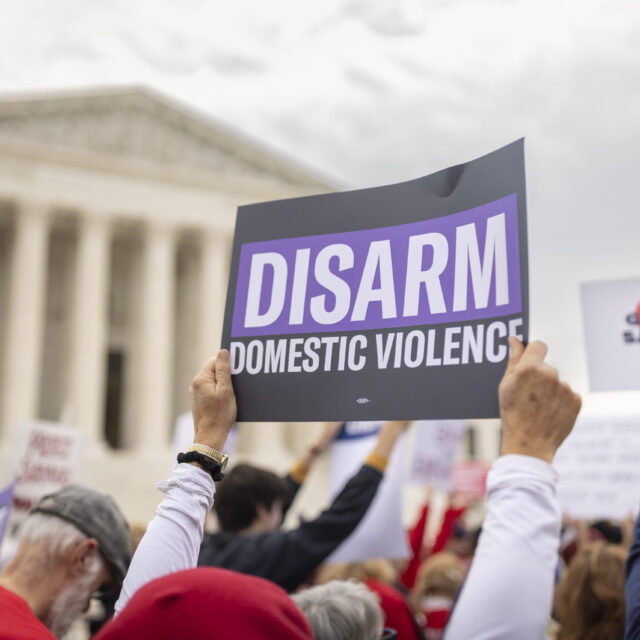
Ensuring Effective Implementation of Laws that Disarm Domestic Abusers
Many states have not fully implemented laws that disarm domestic abusers, leaving survivors at risk.

At the Forefront of Gun Safety: Removing Illegal Guns
While gun violence continues to spike across the country, illegal gun removal programs provide real hope about progress on new solutions.

Everytown Gun Law Rankings
Our annual Gun Law Rankings measure states based on 50 key gun safety measures.
All Resources
Prohibit People With Dangerous Histories From Having Guns
All Resources
The Supply Side of Violence: How Gun Dealers Fuel Firearm Trafficking
Examining the scale of firearm trafficking in the U.S., how gun dealers fuel it, and a roadmap for state action to help protect communities.
Report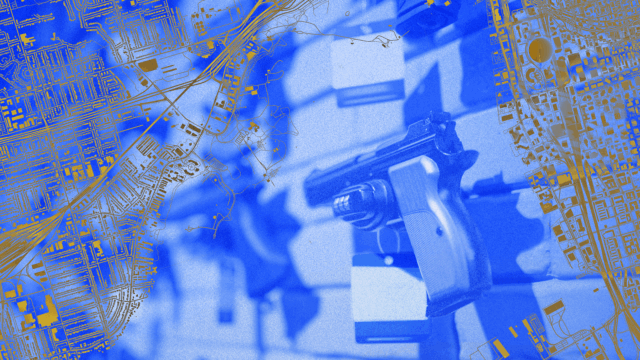
“Chaos and Uncertainty”: A Concealed Carry Mandate is Dangerous and Unpopular
New York City is the largest city in the United States and the most visited, welcoming nearly 65 million tourists in 2024 alone.
Fact Sheet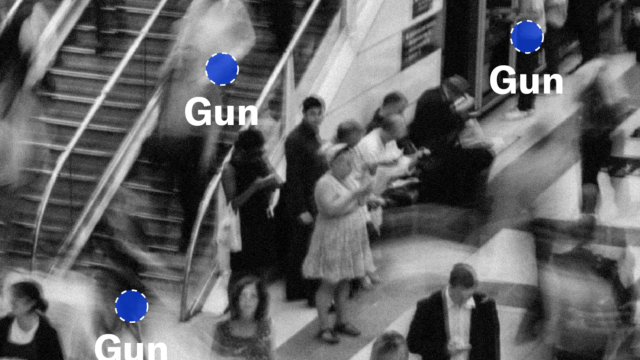
Champions at Work: Extreme Risk Protection Orders in Action
ERPO champions share their insights on how to effectively implement extreme risk laws.
Case StudyHow Guns Fuel Violence Against Transgender People in America
Black trans women are bearing the brunt of a crisis of gun violence, often at the hands of perpetrators who are prohibited from owning guns.
Report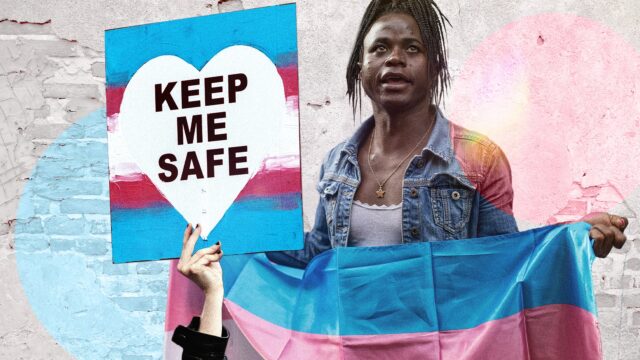
Paranoia and Profit: Armed Extremism and the Gun Industry’s Role in Fostering It
Meanwhile, the industry works with its political allies to make these weapons available to anyone, anywhere, at any time, demonizing those who want to keep…
Report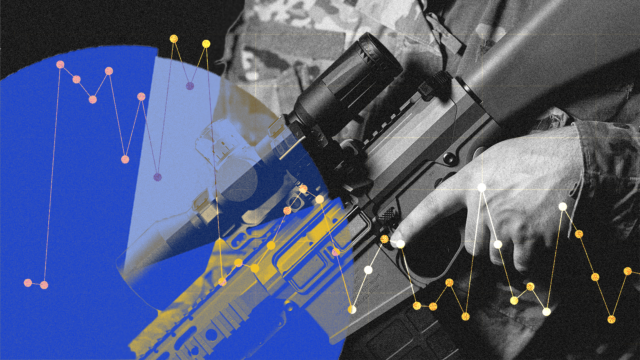
The Smoking Gun
An online resource committed to exposing the gun industry’s role in our gun violence epidemic today.
Everytown Research & PolicyArmed Extremism Primer: Oath Keepers
The Oath Keepers organize around conspiracy theories and propaganda about the reasonable regulation of firearms.
Fact Sheet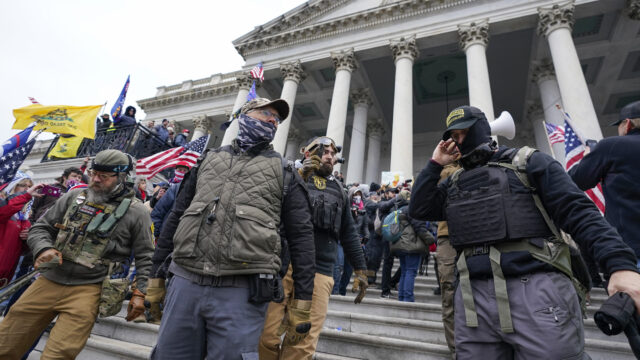
The Economic Cost of Gun Violence
In an average year, gun violence in America kills 40,000 people, wounds nearly twice as many, and costs our nation $557 billion.
Report
Misogyny, Extremism, and Gun Violence
The impact of violent misogyny, combined with the unique harm of violence involving guns, makes addressing it an urgent issue.
Report
Armed Extremism Primer: Sovereign Citizens
Sovereign citizens fall under the umbrella of the wider right-wing anti-government extremist movement, which can include fixation on guns.
Fact SheetCalculate the Economic Cost of Gun Violence
Examining the economic consequences of gun violence is paramount to understanding just how extensive and expensive this crisis is.
Data ToolArmed Extremism Primer: The Boogaloo
The boogaloo movement has risen to national prominence as a new and dangerous subset of the extreme right in the United States.
Fact Sheet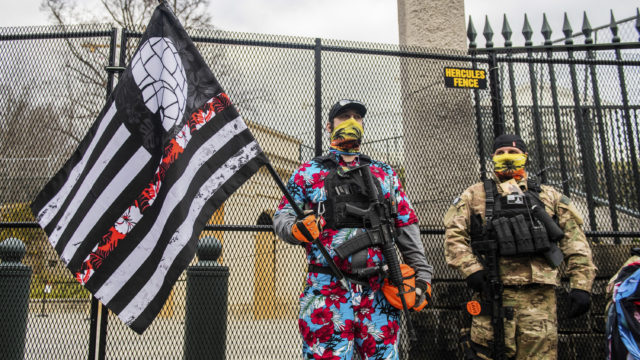
More Than Brawlers: The Proud Boys and Armed Extremism
Many far-right groups, including the Proud Boys, use fearmongering and conspiracy theories in an attempt to stop any reform of gun laws.
Fact Sheet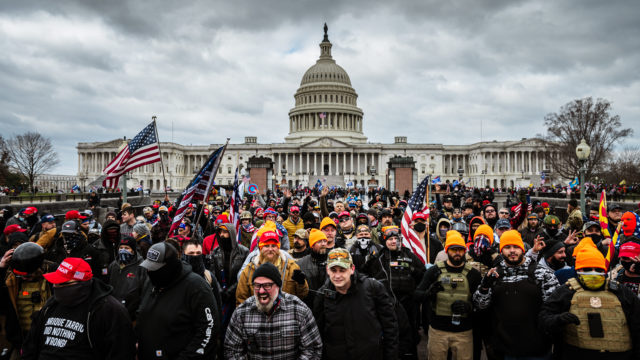
Five Things to Know About Crime Guns, Gun Trafficking, and Background Checks
The current patchwork of state laws makes it easy for individuals to traffic firearms from states with weaker gun laws.
Report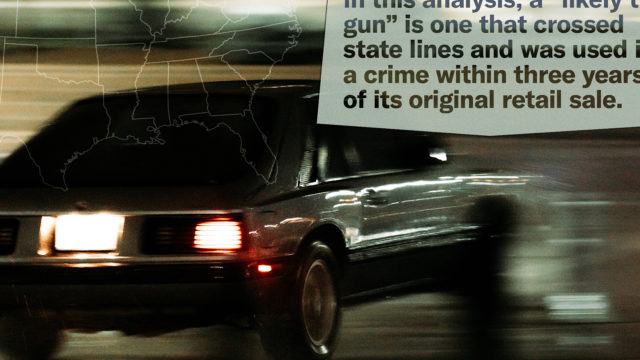
The Danger of No-Questions-Asked Gun Sales Between Strangers
These stories are examples of tragedies that could have been prevented if a background check was required when the shooter bought their gun.
Fact SheetUnchecked: An Investigation of the Online Firearm Marketplace
The online firearm marketplace has emerged as a growing market for anonymous gun purchases through websites such as Armslist.
Data Tracker
The Role of Guns & Armed Extremism in the Attack on the U.S. Capitol
The attack on the U.S. Capitol is the latest demonstration of the danger armed extremism poses to our democracy.
Report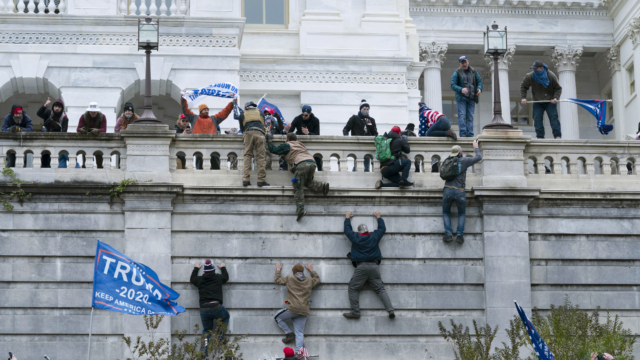
Undeniable: How Long-Standing Loopholes in the Background Check System Have Been Exacerbated by COVID-19
Loopholes must be addressed to ensure that guns are not sold without a completed background check.
Report
Update Background Check Laws
Updating federal and state laws to require background checks on all gun sales is a common-sense way to keep guns out of the wrong hands.
Fact Sheet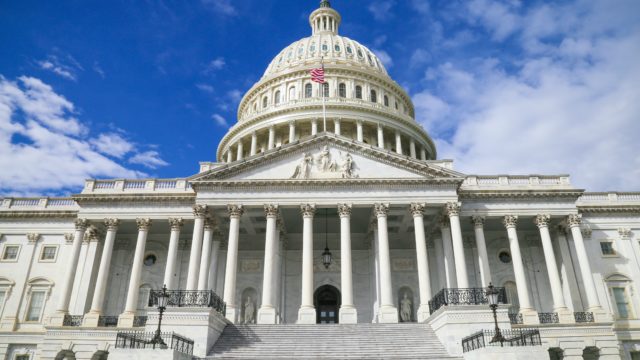
How COVID-19 Has Made a Federal Background Check Loophole Even Deadlier
More background checks were run in March 2020 than at any other time since the creation of the background check system.
Fact Sheet
Domestic Violence and Firearm Surrender in Rhode Island
Since the law was enacted, there has been a seven-fold increase in the number of domestic abusers who were ordered to surrender their guns.
Report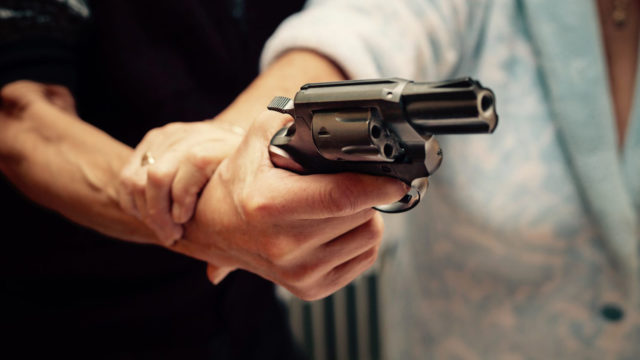
Guns and Violence Against Women: America’s Uniquely Lethal Intimate Partner Violence Problem
Laws keeping guns out of the hands of abusers are associated with lower rates of violence against women and intimate partner homicides.
Report
Disarm Hate: the Deadly Intersection of Guns and Hate-Motivated Violence
Easy access to firearms gives a hate-filled individual the means to shatter numerous lives and whole communities.
Fact SheetFatal Gaps
More than ten years after the Virginia Tech shooting, progress in closing the gaps in state mental health records submissions is evident in several…
ReportDanger in the Land of Enchantment
In October 2016, a violent felon from Deming tried to buy a gun. He had recently served time in prison for three felonies related to…
ReportThe Wild Wild Web
Federal law prohibits certain narrow classes of dangerous people from buying or possessing guns including felons, people convicted of misdemeanor crimes of domestic violence, and…
ReportBusiness As Usual
Americans suffer from an extraordinary rate of gun violence, 20 times higher than nations with comparable levels of economic development.1…
Report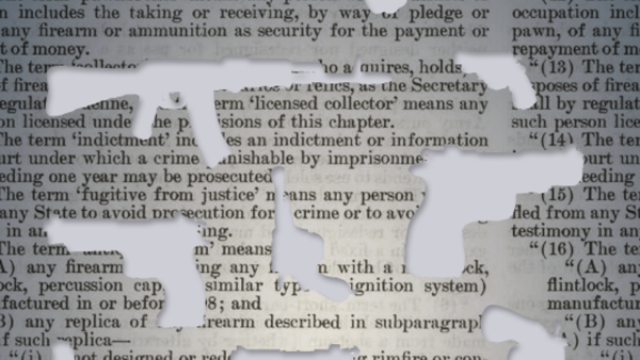
Domestic Abuse Protective Orders and Firearm Access in Rhode Island
Domestic abuse affects the lives of thousands of Rhode Islanders. According to the Rhode Island Judiciary Administration, police responded to nearly 8,000 domestic abuse calls…
Report
